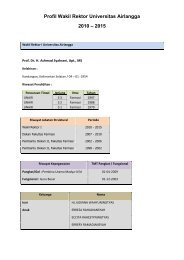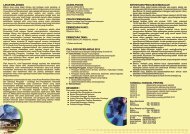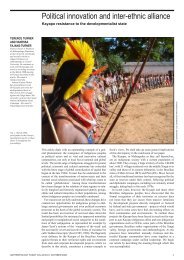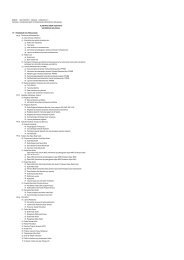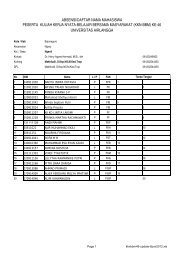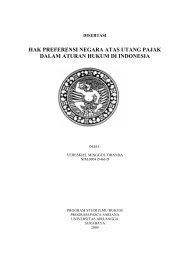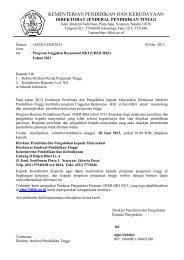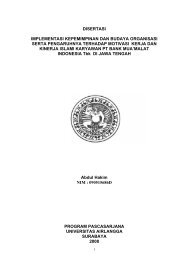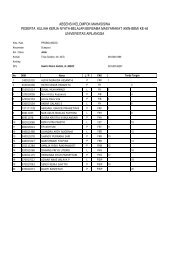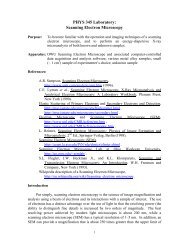Nietzsche's Naturalistic Ethics - UNAIR | E-Book Collection
Nietzsche's Naturalistic Ethics - UNAIR | E-Book Collection
Nietzsche's Naturalistic Ethics - UNAIR | E-Book Collection
Create successful ePaper yourself
Turn your PDF publications into a flip-book with our unique Google optimized e-Paper software.
4.2 Let me introduce some core elements of Korsgaard’s (1996a) account. Once the account is inplace, we will see how the objection from the irrelevance of third-person inquiries to morality arises;we will also see more clearly how the two accounts are related. Korsgaard wishes to show howobligation is grounded in the reflectiveness of self-consciousness, and in virtue of this connectionshe regards her account as naturalistic. The guiding idea is that the capacity to value rests on thereflective nature of the mind: what the mind can and must value, and thus what it is morallypermitted, forbidden, or obligated to do, is constrained thereby. To begin with, it is in virtue ofbeing reflective that a human being can and must view her desires and impulses from a position ofdeliberative detachment. Put differently, in virtue of being reflective, a human being is the kind ofcreature that can and must act for reasons. To be able to make choices and thus to act for reasonspresupposes some conception under which the agent values himself and finds his life worth living.Otherwise he would be in the position of Buridan’s famous ass: he would not know how to chooseto act on some desire rather than any other. This conception is what Korsgaard calls the agent’spractical identity. While reasons express an agent’s identity, obligation stems from what isinconsistent with it. For a practical identity to pertain to a unified decision-maker operating over arange of phenomena, there must be a principle governing her choices to guarantee that similarchoices are made under similar circumstances. Otherwise, the agent’s choices would be a set ofdisconnected phenomena. Thus the reflective nature of the agent’s consciousness forces her choicesto be governed by a law. So far we have said nothing about other agents. To make the connection,note that what these considerations, properly expanded, aim to show is that agents have a practicalidentity only in virtue of being animals capable of reflection, which in turn is what makes themhuman. Our humanity, then, is the source of our ability to bestow value on anything. Thus we mustvalue our humanity if we are to value anything. But since we must value our humanity, we must not26



